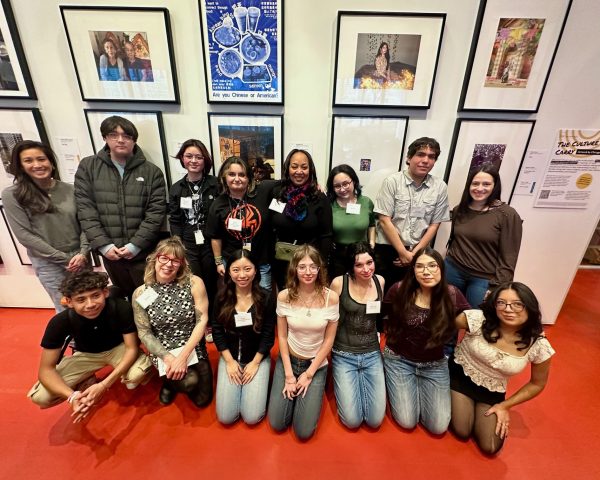What is love?
The season of love has finally arrived. Couples look for gifts for one another, while others scramble to define what type of relationship they have. However, defining love is more difficult than it may seem.
Society has unofficially distinguished love as having no definite meaning. Ironically, love can be defined in 11 different ways, some with extended meanings, according to the Merriam-Webster dictionary.
“The first thing I see from love is being embraced by one feeling you can’t really pinpoint,” Jonathan Cardona, Div. 850, said. “I think love is love. It is neither a scientific thing you can prove nor a fate based idea.”
Science has tried to find the correct definition for it. However, categorizing love has been proven difficult due to the fact that it provokes different physical reactions to different types of love.
According to a Loyola Medicine study report, love is addictive. The brain receives signals to release dopamine, also known as the “pleasure chemical”. Adrenaline released in the body gives the sensation of being on a roller coaster when one sees a “special person”, thus making the heart beat faster and pump more blood to the brain. Such physical reaction usually ends in blushing and sweating.
According to Mrs. Paras, a psychology teacher, attraction can be based on physical appearance and proximity.
“You are more likely to fall in love with someone who is one; physically attractive, so that physical attraction is like the number one factor about why you fall in love with someone, it’s physical at first,” Paras said. “Then the second one is proximity, so how close you live to someone.”
Recognizing that one is in fact in love is one thing. On the other hand, defining what type of love is another problem lovebirds have to deal with.
Although love is defined differently to everyone, within philosophy, there exists four main “categories” utilized by the famous Greek philosophers Plato and Aristotle. According to the Stanford Encyclopedia of Philosophy these four categories are: Eros, Agape, Storge, and Philia.
Plato described Eros as “passionate love” in other words romantic or erotic love. Agape is usually identified with the opposite description of Eros. Agape is “selfless love” or called by many as “charity.” Storge can be identified as what one would call the sentiment of love for one’s family. Last but not least, there is Philia, the famous form of love one feels for friends.
No matter what type of love one has for someone, Cardona advised to not rush love, as it will arrive when it wants.
“It’s always to be remembered that love is a powerful term just like hate,” Cardona said. “Never overuse it, never rush it, or else it will turn into something you won’t want.”
Your donations directly fund the Lane Tech student journalism program—covering essential costs like website hosting and technology not supported by our school or district. Your generosity empowers our student reporters to investigate, write, and publish impactful stories that matter to our school community.
This website is more than a publishing platform—it's an archive, a research tool, and a source of truth. Every dollar helps us preserve and grow this resource so future students can learn from and build on the work being done today.
Thank you for supporting the next generation of journalists at Lane Tech College Prep!

Juanairis is a current junior, with a passion for reading and binge watching online shows. She is hoping to one day travel to the Scandinavian countries...



